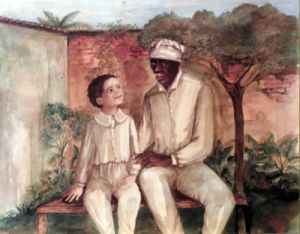Todays La Vida En Black History Month Message comes from Borinken… or the Beautiful island of Puerto Rico… One of the most renowned Puerto Ricans of African ancestry was Rafael Cordero (1790 – 1868), a freeman born in San Juan into a poor family, his father Lucas Cordero worked in the tobacco fields and his mother was Rita Molina. He was one of three siblings, his two older sisters were Gregoria and Celestina. He became known as “The  Father of Public Education in Puerto Rico”.
Father of Public Education in Puerto Rico”.
Cordero was a self-educated Puerto Rican who provided free schooling to children regardless of their race. Cordero was self-educated. His love of literature and his determination to teach and educate himself drove him to develop the skills to teach elementary school.
At the beginning of the 19th century Rafael Cordero established, in his house, a free school for all children, regardless of race, who were unable to afford an education otherwise. Cordero maintained his educational center for 58 years at Luna Street in San Juan. There he taught reading, calligraphy, mathematics and catechism. Among the distinguished alumni who attended Cordero’s school were Román Baldorioty de Castro who went on to be one of Puerto Rico’s most diligent Abolitionists, Alejandro Tapia y Rivera a poet and women’s rights activist and José Julián Acosta a journalist and civil rights activist in Puerto Rico. Cordero proved that racial and economic integration could be possible and accepted.
Cordero was awarded the coveted Premio de Virtud by La Sociedad Económica de Amigos del País, (the Friends of Puerto Rico Economic Society) an economic club. A cash prize associated with the award was given to Cordero and he gave the money away to those most in need. Using half of the money, Cordero bought books and clothes for his students and the other half was given to the homeless.
The people’s love and respect for Cordero was evidenced by the fact that more than 2,000 people attended his funeral in 1868. In 2004, the Roman Catholic Church, upon the request of San Juan Archbishop Roberto González Nieves, began the process of Cordero’s beatification, the first step in the process of canonization. That’s La Vida En Black History for February 13, 2015.

Leave a comment